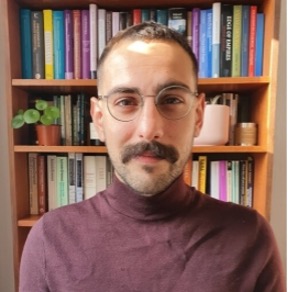Abstract
Socio-economic and narrative approaches to the study of medieval historiography have rarely gone hand in hand. Where social and economic historians have tended to see historiographical narratives as simple “sources” from which to extract standalone information, narratological scholars have tended to emphasise the superficiality of such approaches to complex compositions. This unfortunate bifurcation has foreclosed the possibility of the kind of social and economic narrative analyses for medieval historiography that have shown such rich potential in studies of modern and contemporary literature. In this paper, I will apply one such approach, Fredric Jameson’s Marxist literary theory from his monograph The Political Unconscious (1981), to the eleventh-century Armenian history written by the churchman Aristakes Lastivertsi. Covering the period 1000-1071, and written soon after in the 1070s, the history provides a unique perspective on the historic Armenian lands in the radical transformations of eleventh-century south-west Asia, first conquered by the Eastern Roman Empire, and then epicentre of the Seljuq Turkish invasions and their aftermath. The almost total lack of biographical information about Aristakes removes the illusion of recovering a concrete person, opening up the possibility instead of focusing entirely on what the narrative itself reveals of its writer as a historical actor. By reading the history, in Jameson’s terms, as a ‘socially symbolic act’ intended to ideologically reconcile the contradictions of the social relations in which Aristakes was situated, we can read back through these resolutions to the political economy that produced these contradictions. More broadly, then, this special lecture will serve as a case study for how socio-economic and narrative approaches can be productively brought together in the study of the medieval past.
Researcher Biography
Nicholas S.M. Matheou is lecturer in Global Medieval History at the University of Edinburgh. He specialises in the social and economic history of medieval South-West Asia, holds a doctorate from the University of Oxford, and has held posts at the Institute for Historical Research (University of London) and The Armenian Institute.
Organisation
Matthew Kinloch (matthew.kinloch@ifikk.uio.no) within the framework of the project ‘Politisk økonomi og kjønn forstått gjennom middelalderfortellinger’, funded by the Hans Andreas Benneches stiftelse.
Location
The seminar will take place at 10:00-12:00 in seminar room 652 in Georg Morgenstiernes hus, UiO Blindern campus. The event will be hybrid. If you wish to receive the zoom link, please send an email to matthew.kinloch@ifikk.uio.no with the subject line ‘Matheou Seminar’ by the 21st February to receive a Zoom link.
